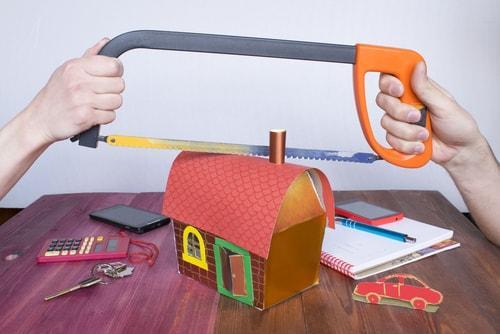Wheaton |
St. Charles |
Sycamore
 630-665-7300
630-665-7300
How Is Property Divided During a Divorce?
 Every day, people make the decision to divorce their spouse. Sometimes, the split is related to adultery or abuse, and other times the spouses simply no longer wish to be married. For many of these couples, divorce is something they never saw in their future. Most couples get married with the hope of spending the rest of their lives together. They share not only their lives but also all of their possessions. This can make the issue of property division especially tricky during divorce.
Every day, people make the decision to divorce their spouse. Sometimes, the split is related to adultery or abuse, and other times the spouses simply no longer wish to be married. For many of these couples, divorce is something they never saw in their future. Most couples get married with the hope of spending the rest of their lives together. They share not only their lives but also all of their possessions. This can make the issue of property division especially tricky during divorce.
Couples who are considering divorce may worry about how their savings account, retirement accounts, family home, vehicles, furniture, and other assets will be divided. In Illinois, property is divided based on what is “equitable.” This means that the property may not be split exactly evenly. Instead, it will be divided in accordance with what the court deems to be fair and just. Each case is different, but generally, a judge will consider factors such as:
- Each spouse's contributions to the acquisition, preservation, or increased value of marital property, including contributions as a homemaker;
- Custodial arrangements for children conceived during the marriage (the family home is often awarded to the parent who has a majority of the parenting time with the children);
- An existing prenuptial or post-nuptial agreement;
- The duration of the marriage;
- Each spouse's age, health, and economic circumstances, and future employability;
- Whether a spouse is receiving spousal support from a former spouse;
- Each spouse's current job and their abilities for future acquisition of assets and income; and
- Spousal support or child support that either spouse is already paying.
Equitable property distribution in an Illinois divorce can be complicated. The divorce process is already an emotional experience, and the division of assets can sometimes be difficult. Those considering divorce may worry that their spouse will get more than his or her fair share of the marital property. Others who have stayed at home to raise children or to be homemakers may worry that they will be unable to find employment after divorce. There are so many things to consider when dissolving a marriage, it is extremely difficult to manage alone.
Call Us for Help
If you are considering or planning to divorce your spouse, you need an experienced family law attorney on your side. Illinois property division matters often do not need to go to trial, although our skilled civil litigators are ready to proceed to trial if needed. Contact our knowledgeable Kane County property distribution attorneys at Mirabella, Kincaid, Frederick & Mirabella, LLC at 630-665-7300 today.
Source:
http://www.ilga.gov/legislation/ilcs/ilcs5.asp?ActID=2086&ChapterID=59


 Read More
Read More





